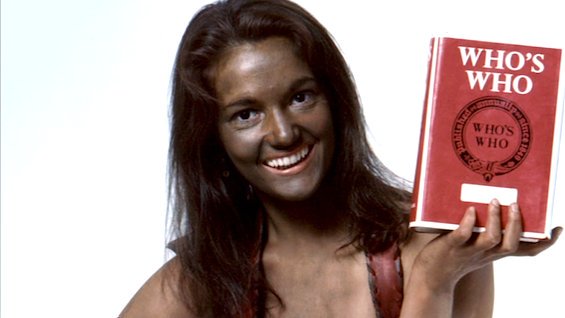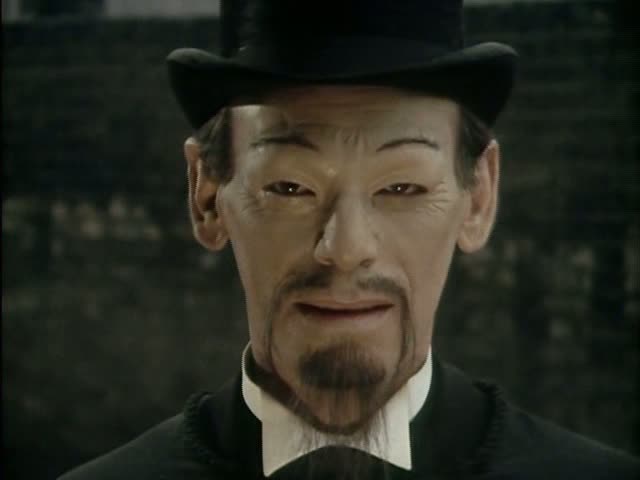Fragile Talons, Part 2: Colonies in Space
 “There has never been a document of culture, which is not simultaneously one of barbarism. Not even Doctor Who.”
“There has never been a document of culture, which is not simultaneously one of barbarism. Not even Doctor Who.”
– Walter Benjamin, ‘On the Concept of History’ (quoted from memory)
*
Where was I?
Oh yeah, it’s unfair to pick on ‘Talons of Weng-Chiang’ for being racist because all Doctor Who is racist.
So what do I mean by that?
Well, I don’t just mean that there are lots of stories in Doctor Who that contain implicit or explicit racist ideas, representations, or implications … though it does, and it might be worth going through some of them.
There’s ‘An Unearthly Child’, for instance, which associates ‘tribal’ life with brutishness and savagery, and suggests that tribal people need to be taught concepts like friendship and cooperation by enlightened Western liberals from technologically advanced societies… as if, historically, enlightened Western liberals from technologically advanced societies haven’t been the ones slaughtering tribal peoples. Native peoples, by the way, know what friendship and cooperation are. Sometimes better than us. And we are talking about native peoples in ‘Unearthly’. Because of Europeans’ historic encounters with native peoples as European imperialism and colonialism spread across the globe, we’ve come to associate the notion of tribal people – if we accept that word and what it connotes – with people of colour. And such people, after initial encounters (often amiable), became conveniently reconstructed in the ideological thoughtworld of European imperialism and colonialism as, to borrow Kipling’s phrase, “half devil and half child”. This couplet neatly describes the Tribe of Gum, and shows them to be imagined out of the imperialist ideological tradition. Even if, in an alternative reading, they are the descendants of the people of the 1960s after a nuclear holocaust, they are still a picture of humanity in a savage ‘state of nature’, itself part of the same ideological tradition.
This is a very early indication of the complexity of the issue. Without any overt racial statement or coding, the very first story is found to be an ideological product of a racist tradition arising from imperialism and colonialism.
Then there’s ‘The Daleks’, an almost immediate engagement on the part of the show with something that will continue to be one of its running fixations: the metaphorical representation of Nazism. This story introduces the show’s ubermensch uber-villains, well understood to be metaphorical Nazis, with their creed of racial supremacy and their cries of “Exterminate!” (though they don’t actually do that in their debut), and takes a more or less explicit anti-racist line on its surface. It goes beyond a conventional post-war British triumphalism and explicitly associates Nazism with racism… or at least with its own understanding of racism as a form of parochialism, which chimes with a certain way of interpreting post-Windrush tension in the UK. The irony is that, almost behind its own back, this is a story in which “perfect”, virtuous, blonde, volkisch, Aryan, supermen-farmers are forced to fight a race of evil, mechanically-ingenious, wealth-hoarding, subterranean dwarves who threaten their culture.…

 Thanks to the various people who looked over this and made suggestions, especially Holly. The mistakes are, of course, mine alone.
Thanks to the various people who looked over this and made suggestions, especially Holly. The mistakes are, of course, mine alone.